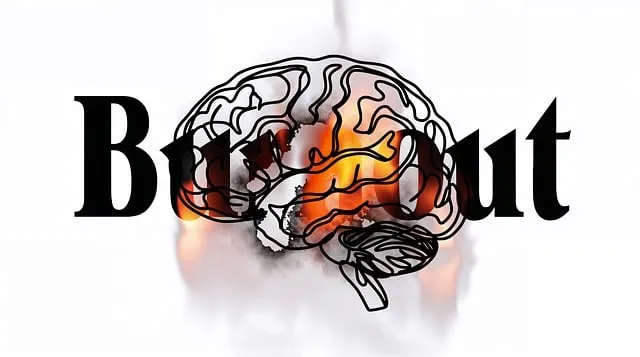Emotion regulation through cultural competency training, trauma support, conflict resolution, mindfulness, and cognitive strategies is vital for mental well-being. Kaiser Permanente psychiatry phone number Englewood offers tailored crisis intervention, burnout prevention, and evidence-based therapy using CBT, mindfulness, and emotional awareness exercises to enhance mood management and overall health.
Emotion regulation techniques are essential tools for maintaining mental well-being, as evidenced by the growing interest in holistic healthcare approaches. This article explores effective strategies taught by professionals at Kaiser Permanente psychiatry services in Englewood. We delve into understanding emotional regulation, mindfulness practices, cognitive techniques, and the therapeutic role in fostering resilience. By mastering these skills, individuals can navigate life’s challenges with enhanced coping mechanisms, leading to improved mental health outcomes.
- Understanding Emotion Regulation for Mental Well-being
- Teaching Mindfulness: A Key Strategy for Patients
- Cognitive Techniques to Manage and Transform Emotions
- The Role of Therapy in Developing Effective Coping Skills
Understanding Emotion Regulation for Mental Well-being

Emotion regulation is a vital skill for maintaining mental well-being, and learning effective techniques can significantly impact an individual’s overall health. It involves recognizing, understanding, and managing emotions in healthy ways, ensuring they don’t overwhelm or control one’s thoughts and actions. This process is crucial, especially for individuals seeking support from healthcare providers like those available at the Kaiser Permanente psychiatry phone number Englewood.
Cultural competency training for healthcare providers plays a significant role in assisting patients with emotion regulation. By understanding the impact of cultural and social factors on emotional experiences, providers can offer tailored support. Additionally, Trauma Support Services and Conflict Resolution Techniques are valuable tools that can be integrated into therapy to help individuals navigate and resolve intense emotions, fostering better mental health outcomes.
Teaching Mindfulness: A Key Strategy for Patients

Teaching mindfulness is a key strategy within emotion regulation techniques, and it’s becoming an increasingly vital tool in mental health care. At Kaiser Permanente psychiatry phone number Englewood, professionals are leveraging this approach to empower patients with effective coping mechanisms. Mindfulness involves training individuals to be fully present in the moment, non-judgmentally observing their thoughts, feelings, and bodily sensations.
This practice, often integrated into Social Skills Training and Compassion Cultivation Practices, helps patients gain a deeper understanding of their emotions and triggers. By fostering self-awareness, mindfulness allows for better risk management planning for mental health professionals, enabling individuals to respond to challenging situations more adaptively. It’s about learning to accept and regulate emotions without reacting impulsively, thereby promoting overall emotional well-being.
Cognitive Techniques to Manage and Transform Emotions

Emotion regulation techniques, such as cognitive strategies, are powerful tools for managing and transforming feelings. Cognitive techniques involve identifying and challenging negative thought patterns that can intensify emotions. By questioning these thoughts, individuals can gain a more balanced perspective, leading to improved emotional resilience. For instance, when faced with stress or anxiety, one might recognize distorted thinking like “I always fail” and replace it with more realistic self-talk, acknowledging past successes. This reframing process empowers people to handle challenging situations more effectively.
Seeking guidance from professionals like those at the Kaiser Permanente psychiatry phone number Englewood can offer valuable insights into these cognitive techniques. They provide crisis intervention and burnout prevention strategies tailored to individual needs, fostering mental health awareness and coping mechanisms for a wide range of emotions.
The Role of Therapy in Developing Effective Coping Skills

Therapy plays a pivotal role in teaching individuals effective emotion regulation techniques, which are essential for managing mental health conditions. At healthcare institutions like Kaiser Permanente psychiatry phone number Englewood, professionals utilize evidence-based approaches to empower patients with coping skills tailored to their unique needs. Through one-on-one sessions or group therapy, individuals learn to identify and understand their emotions, develop strategies to calm themselves during distressing situations, and gradually build resilience.
This therapeutic process involves various techniques, such as cognitive-behavioral therapy (CBT), mindfulness practices, and emotional awareness exercises. Mental illness stigma reduction efforts have emphasized the importance of early intervention and ongoing support, making these services accessible through specialized programs. Healthcare provider cultural competency training further enhances the effectiveness of care by ensuring that treatment approaches are sensitive to individual backgrounds and experiences, ultimately contributing to improved mood management and overall well-being.
Emotion regulation techniques, as explored through mindfulness practices, cognitive strategies, and therapeutic support from resources like the Kaiser Permanente psychiatry phone number Englewood, are invaluable tools for enhancing mental well-being. By understanding and managing emotions effectively, individuals can navigate life’s challenges with greater resilience and improved overall health. These teachings foster a sense of control, enabling folks to transform negative emotional responses into positive ones, ultimately enriching their lives.






